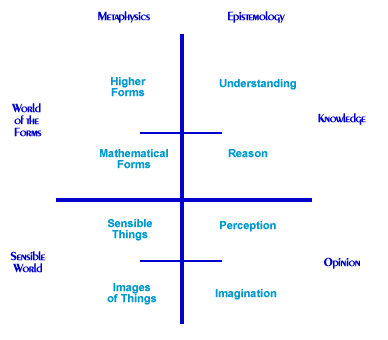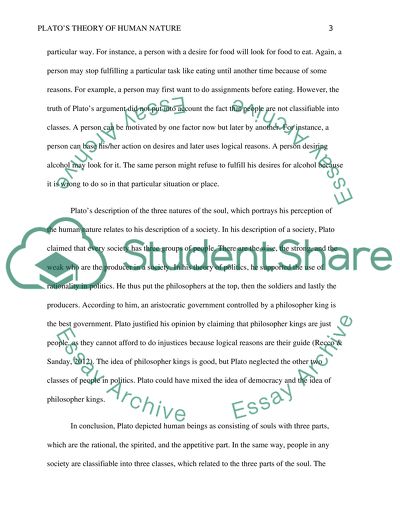Plato was a Greek philosopher who lived in the 4th century BCE. He was a student of Socrates and a teacher of Aristotle, and is considered one of the most important figures in the history of Western philosophy. Plato's philosophy is centered on the concept of human nature and the belief that humans have an innate desire to seek truth and knowledge.
According to Plato, human nature is characterized by a desire for wisdom and understanding. He believed that humans are naturally curious and driven to seek out knowledge and understanding of the world around them. This desire is rooted in the belief that knowledge and understanding can lead to a more fulfilling and meaningful life.
In Plato's philosophy, the human soul is divided into three parts: the rational part, the spirited part, and the appetitive part. The rational part represents the desire for knowledge and understanding, while the spirited part represents the desire for power and honor. The appetitive part represents the desire for pleasure and material goods.
Plato believed that the rational part of the soul should be the dominant force in a person's life, as it allows them to make informed and logical decisions. However, he also recognized that the other two parts of the soul can sometimes exert a strong influence on a person's behavior, leading to conflict and imbalance.
Plato believed that the pursuit of knowledge and understanding is the key to living a good and virtuous life. He believed that the pursuit of knowledge and understanding should be the primary goal of education, and he developed the concept of the "philosopher-king," in which the rulers of society are those who have achieved the highest level of wisdom and understanding.
In summary, Plato's philosophy of human nature is centered on the belief that humans have an innate desire for knowledge and understanding, and that this desire should be the driving force in their lives. He believed that the pursuit of knowledge and understanding is the key to living a good and virtuous life, and that it should be the primary focus of education.
Plato, a Greek philosopher who lived in the 4th century BCE, had a unique perspective on human nature. He believed that each person has a unique, innate nature that is capable of virtue and wisdom, and that it is the role of society and education to cultivate and nurture these qualities in individuals.
According to Plato, the human soul is divided into three parts: the rational part, the spirited part, and the appetitive part. The rational part is responsible for reason and thought, the spirited part is responsible for passion and emotion, and the appetitive part is responsible for physical desires such as hunger and sex.
Plato believed that the rational part of the soul is the most important, as it is through the use of reason that individuals can achieve virtue and wisdom. He argued that the ultimate goal of human life is to cultivate the rational part of the soul, as this will lead to a life of happiness and fulfillment.
However, Plato also recognized that the other parts of the soul can often conflict with the rational part, leading to internal struggles and conflicts. For example, the appetitive part may desire material possessions or physical pleasure, while the rational part may recognize that these desires are not in the individual's best interests.
In order to overcome these conflicts and cultivate the rational part of the soul, Plato argued that individuals must engage in philosophical contemplation and study. He believed that by examining the nature of reality and truth, individuals could develop a deeper understanding of the world and their place in it, leading to a more virtuous and fulfilling life.
Overall, Plato's view of human nature emphasizes the importance of reason and contemplation in achieving a fulfilling and virtuous life. He believed that each person has the potential to achieve greatness, and that it is the role of society and education to nurture and cultivate this potential.







